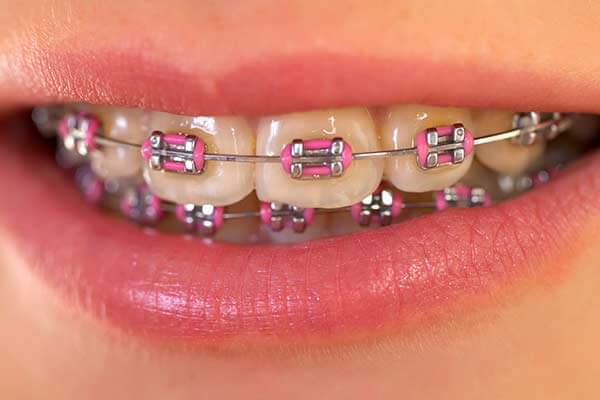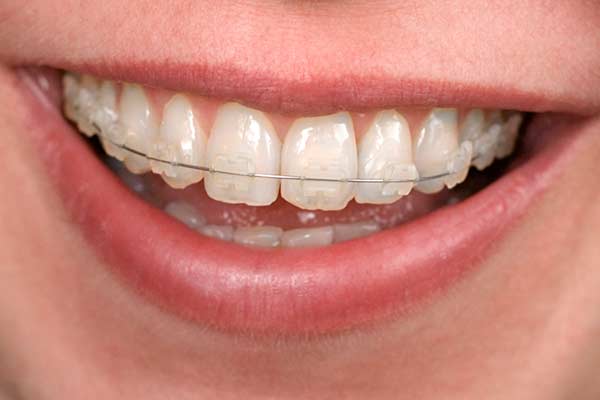Comprehensive Guide to Orthodontics Procedures for Dealing With Dental Imbalances
In the realm of orthodontics, the trip to attaining a completely aligned smile includes a myriad of treatments tailored to deal with oral misalignments. From traditional braces to unseen aligners and also surgical alternatives, the area of orthodontics provides a range of options to deal with differing degrees of dental abnormalities. Comprehending the details of each procedure, including their devices, benefits, and possible drawbacks, is vital in making educated choices regarding one's orthodontic therapy. As we navigate via the comprehensive overview to orthodontic treatments for correcting dental misalignments, the complex information of each approach will unfold, dropping light on the path towards a unified and functional dental alignment.
Orthodontic Procedures Overview

Regular adjustments and monitoring are important parts of orthodontic treatment to guarantee development is on track and to make any type of needed adjustments along the method. By going through orthodontic procedures, clients can not only accomplish a straighter smile but likewise improve their overall oral health and wellness and function.
Standard Braces: Just How They Work
When thinking about orthodontic therapies for dental misalignments, typical braces stand out as a tried and true approach for correcting teeth positioning. Traditional dental braces are composed of braces, wires, and bands that work together to apply constant stress on the teeth, gradually moving them into the preferred positioning.
As stress is used to the teeth with the braces, the bone surrounding the teeth is improved to sustain the brand-new tooth positions. Clients will require regular adjustments at the orthodontist's office to make sure the dental braces continue to apply the correct stress for reliable teeth motion.
Undetectable Aligners: Benefits And Drawbacks
Invisible aligners supply a very discreet and practical option to conventional braces for dealing with oral misalignments. These clear, customized trays are essentially unseen when used, making them an appealing alternative for people seeking an extra visually pleasing orthodontic therapy. Among the primary benefits of unnoticeable aligners is their removability, allowing for less complicated maintenance of dental health contrasted to traditional dental braces. Clients can get rid of the aligners prior to eating or brushing their teeth, reducing the threat of food getting embeded the appliance and streamlining the cleaning procedure.

Surgical Orthodontic Options
Surgical interventions in orthodontics present practical choices for attending to complicated dental misalignments that might not be properly settled via traditional orthodontic treatments. While undetectable aligners and conventional braces can correct several orthodontic problems, particular cases call for medical intervention to attain optimum results. Surgical orthodontic choices are commonly suggested for severe malocclusions, significant jaw disparities, and situations where the underlying bone structure requires modification to attain appropriate alignment.
One usual surgical orthodontic treatment is orthognathic surgical treatment, which involves rearranging the jaws to fix functional problems such as difficulty talking or eating. This surgical treatment is frequently executed in cooperation with an orthodontist who aids line up the teeth prior to and after the treatment. Surgical orthodontics may additionally include treatments to expose influenced teeth, remove excess gum cells, or reshape the jawbone to produce a much more harmonious face profile.
Before taking into consideration surgical orthodontic alternatives, clients undertake an extensive evaluation to identify the need and potential advantages dental extraction of such interventions. aligners. While surgical procedure might seem overwhelming, it can considerably enhance both the feature and aesthetics of the smile in situations where traditional orthodontic therapies fail
Retainers and Post-Treatment Care

Failure to comply with post-treatment treatment guidelines can result in regression, where the teeth slowly move back towards their initial positions. Consistent retainer wear, excellent oral health, and routine dental check-ups are essential for keeping the outcomes attained with orthodontic surgical treatment and guaranteeing the long-term security of the corrected dental positioning.
Conclusion
Finally, orthodontic treatments provide various alternatives for remedying dental imbalances. Traditional dental braces utilize steel brackets and wires to move teeth into correct alignment. Invisible aligners supply a more discreet choice however may not be ideal for all situations. Surgical orthodontic alternatives pop over here are available for extra serious imbalances. Retainers are generally utilized post-treatment to maintain the brand-new alignment. Generally, orthodontic treatments can efficiently boost dental wellness and aesthetic appearance.
As we navigate with the comprehensive guide to orthodontic procedures for dealing with oral misalignments, the elaborate information of each technique will certainly unravel, shedding light on the path toward a unified and useful dental placement. - braces
One of the most typical orthodontic therapies is the usage of dental braces, which are composed of steel braces and cords that apply mild stress to progressively change teeth right into the wanted position.When considering orthodontic treatments for dental imbalances, typical dental braces stand out as a reliable approach for correcting teeth positioning. Additionally, unnoticeable aligners may not be appropriate for complicated orthodontic concerns that call for even more substantial teeth activity, as they are generally recommended for mild to moderate instances. Retainers are custom-made orthodontic devices designed to hold teeth in their corrected placements after the conclusion of orthodontic therapy.
Comments on “Leading Tips for Selecting the most effective Cumming Orthodontist for Braces and Aligners”